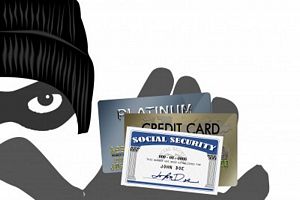Blog
Control Identity Theft and Credit Scores
Control Identity Theft and Credit Scores
Keep impersonators at bay! Along with its boon, the digital era brings with it some trouble as well and identity theft is one problem that is growing and frequency. In the ever-increasing digital space, stealing identity of a person to gain financial advantages has become easier. So, this is one area where people must learn to be more cautious to prevent identity theft.
Mike, a marketing professional working in an advertising agency, is well versed with the fact that there are now a few new weapons to help you battle identity theft. Like Mike, every citizen of this country should be aware that a federal law gives consumers the right to receive a copy of your credit report once every 12 months free of charge, or if you are refused credit on an application. This law was designed to encourage Americans to keep a closer watch on their credit report and reduce identity theft.
Credit Reporting Bureaus
Equifax, TransUnion, and Experian, each are required to provide you with an annual credit file disclosure or report upon request (therefore you must ask for it). Now there are some credit card companies that freely give your credit score on the monthly credit card statements. On others, you must still request and pay, though, to get a credit score. It is not part of the new free credit report annual provision.
IRS Handling of Identity Theft
The Treasury Inspector General for Tax Administration (TIGTA) reported that the Internal Revenue Service (IRS) failed to investigate thousands of identity theft cases, because taxpayers filed an incorrect tax return. The IRS used Form 3949-A (Information Referral) to report suspected cases of tax fraud in 2012. However, the instructions were very confusing, and many people used this form to report identity theft cases. The IRS destroyed those forms because prior to May 2012, there were no procedures in place to process them as identity theft cases.
Today there are now current IRS procedures in place that allow for Form 3949-A to be accepted as a report for identity theft. If you use this form, you must attach a copy of your police report and valid identification. If you want to report identity theft without sending a copy of your police report and picture identification, the IRS accepts Form 14039 (Identity Theft Affidavit). As soon as you find out your identity has been compromised, you should contact the IRS immediately, along with Credit Reporting Agencies, and your ID theft insurance company; if you have that coverage.
You can report this to the IRS either separately or attached to your tax return. Be sure to also contact everyone you bank with, do business with, and file personal information with, about the ID theft. Credit bureau reporting is MORE than just reporting credit card usage and history. It includes ALL types of credit activity. Any type of loan, Tax returns, Health insurance and Medicare coverages, Driver’s License, Passport and Social Security information all use credit activity to validate your access to them.
How can we protect ourselves from identity theft? Keep these tips from “idexpertscorp.com” in mind:
- File your tax return as early as possible. Fraudsters file early using stolen information in attempts to beat the taxpayer to filing. The IRS easily processes the first return filed under a social security number- make sure it’s the legitimate return to avoid delays.
- Any email purporting to be from the IRS is likely a scam. If you have filed online, you will receive emails from the Efile website you used confirming that your return has been accepted by the IRS. You will also receive payment confirmation emails from the IRS if you pay your taxes online directly to the IRS thru their Electronic Federal Tax Payment System (EFTPS).
- The IRS will never ask for personal or financial information in an email or over the phone. Never provide your social security number, bank or credit card information, or security- related information such as mother’s maiden name in an email or on another site through an email link you were sent.
- Scammers often use bait to get their victims to respond – dangling promises of extra tax refunds or offering payment for participation in an IRS survey. Another tactic involves the use of threats of legal action or withholding of refunds. Remember, the IRS will not communicate with consumers for any of these purposes via email.
- Be cautious when visiting the IRS website. Always go to https://www.irs.gov directly rather than following any email links to the site. There are many false websites impersonating the IRS, waiting for unsuspecting consumers to enter their personal information. Common scams often try to direct consumers via email to phony IRS sites. Remember that an email link’s true website address (URL) is revealed by moving your mouse over the link.
- If you leave your taxes to the professionals, it pays to be choosy when choosing a tax preparer. Unethical tax preparers are making headlines every day for committing tax fraud or identity theft using their clients’ information. It’s important to check your preparer’s credentials or licensing. Be sure to only use a Certified Public Accountant (CPA), Enrolled Agent (EA), or attorney.
- You may also use either a Credit Freeze or a Fraud Alert on your credit account at the reporting agencies to stop the further use of your information to acquire financial access of your accounts. Each Credit Reporting agency will charge a monthly fee for a Credit Freeze, while a Fraud Alert is usually free, for all three. And a Fraud Alert is only necessary to send to one credit agency, (www.experian.com/fraud) because the other two will be notified. Either method will slow down your use of credit, going forward because you will need to approve or verify your identity before your credit purchase will be accepted. SO, remember, this will slow your use of credit!
Income Tax and Social Security Impact of Identity Theft
Remember this, reporting Identity Theft to the IRS will delay your refund, but it will also ensure that you receive it rather than the ID thief. Chances are you will receive a check, rather than direct deposit refund into your checking or savings account. Also, you will receive an ID Theft personal identification number (PIN) to use when filing future returns to ensure your return is the correct one.
If you end up spending money to prosecute an identity thief, either through attorney’s fees or other fines, the out of pocket money may be considered a Casualty Loss. This could be an allowed deduction on your personal tax return.
Casualty losses are given a better tax deduction than a normal itemized deduction. It is considered an Ordinary Loss, is not subject to Alternative Minimum Taxes, and could help you reduce your tax liability against any other income you might have.
Further, if you are a victim of identity theft, you must paper file your tax return. You cannot e- file your return! Be sure to attach a completed and signed IRS Form 14039, along with a copy of your current driver’s license or passport, to be submitted with your original tax return. This will ensure your refund is sent to you and your tax records are correctly placed in your name. This is also important to make sure your Social Security records reflect correct information towards your benefits later in life.
Here are several steps the IRS suggests you can take to help protect yourself against identity theft:
- Don’t give a business your SSN or ITIN just because they ask. Give it only when required.
- Protect your financial information.
- Check your credit report at least every 12 months.
- Check your Social Security statement or account at least every 12 months.
- Protect your personal computers by using firewalls and anti-spam/virus software, updating security patches and changing passwords for Internet accounts regularly.
- Don’t give personal information over the phone, through the mail or on the Internet unless you have initiated the contact and are sure of the recipient.
Here are some final points to remember:
- All three credit reporting bureaus are required to give an annual credit report (if requested). But you must still pay to acquire a credit score from the credit reporting companies
- Ways to get credit reports are as follows:
- Visit the website at www.annualcreditreport.com
- Write to:
Annual Credit Report Request Service
P.O. BOX 105283
Atlanta, GA 30348
- Call: Toll Free at (877) 322-8228
- Use IRS form 14039 along with a copy of your driver’s license or passport to file with your original tax return. If you are a victim of identity theft, this will ensure your refund is sent to you, and you will be sure your income records are corrected with the Social Security Administration.
- Contact your bank, credit card companies, Social Security Administration and all financial institutions you are associated with.
- Consider using either a Fraud Alert or Credit Freeze on your credit report, if you have been exposed to hacking, theft or loss. Freezes cost a monthly fee, while Fraud Alerts are free.
- Contact your tax professional to seek assistance on instructions.
Related Blog Posts
Tips for Farmers and Farm Tax Returns
Learn how to pass on more of your wealth to your heirs and pay less to the government before it's too late! Click here...Address & Map(602) 264 - 9331CLIENT PORTALAddress & Map(602) 264-9331 Bringing food to the plate matters. So those who toil hard to...
Deductions allowed when you do not itemize
Learn how to pass on more of your wealth to your heirs and pay less to the government before it's too late! Click here...Address & Map(602) 264 - 9331CLIENT PORTALAddress & Map(602) 264-9331[DISPLAY_ULTIMATE_SOCIAL_ICONS] There are lines and then there...
Basis, Capital Gains, and Losses
Learn how to pass on more of your wealth to your heirs and pay less to the government before it's too late! Click here...Address & Map(602) 264 - 9331CLIENT PORTALAddress & Map(602) 264-9331[DISPLAY_ULTIMATE_SOCIAL_ICONS] Now is the time to act smart,...
Do You Owe The IRS?
Learn 5 Secrets The IRS Doesn't Want You To Know.
Click on the button below to get FREE access to this exclusive content.
Get Expert Tax Advice from an expert
Mr. Hockensmith has been a guest newscaster for national and local TV stations in Phoenix since 1995, broadcasting financial and tax topics to the general pubic. He has written tax and accounting articles for both national and local newspapers and professional journals. He has been a public speaker nationally and locally on tax, accounting, financial planning and economics since 1992. He was a Disaster Reservist at the Federal Emergency Management Agency, for many years after his military service. He served as a Colonel with the US Army, retiring from military service after 36 years in 2008. Early in his accounting career, he was a Accountant and Consultant with Arthur Andersen CPA’s and Ernst & Young CPA’s.










